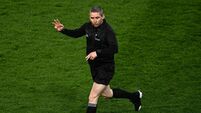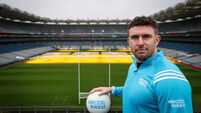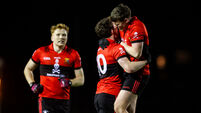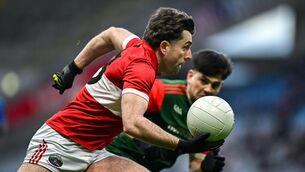One year on
Having organised and trained her manhood through her secret revolutionary organisation... she strikes in full confidence of victory."
It was a late year for Easter, a major war going on in Europe but a relatively quiet time in dear old Dublin when, out of left field, that peace was shattered. A band of revolutionaries took over the GPO and Padraig Pearse, their leader, hollered to the bemused bystanders. It was a day that would go down in history, those lines just the opening paragraph of a Proclamation of Independence rich in idealistic rhetoric. At the bottom of the document, seven names "signed on behalf of the provisional government, Thomas J Clarke, Sean MacDiarmada, Thomas McDonagh, PH Pearse, Eamonn Ceannt, James Connolly, Joseph Plunkett."













